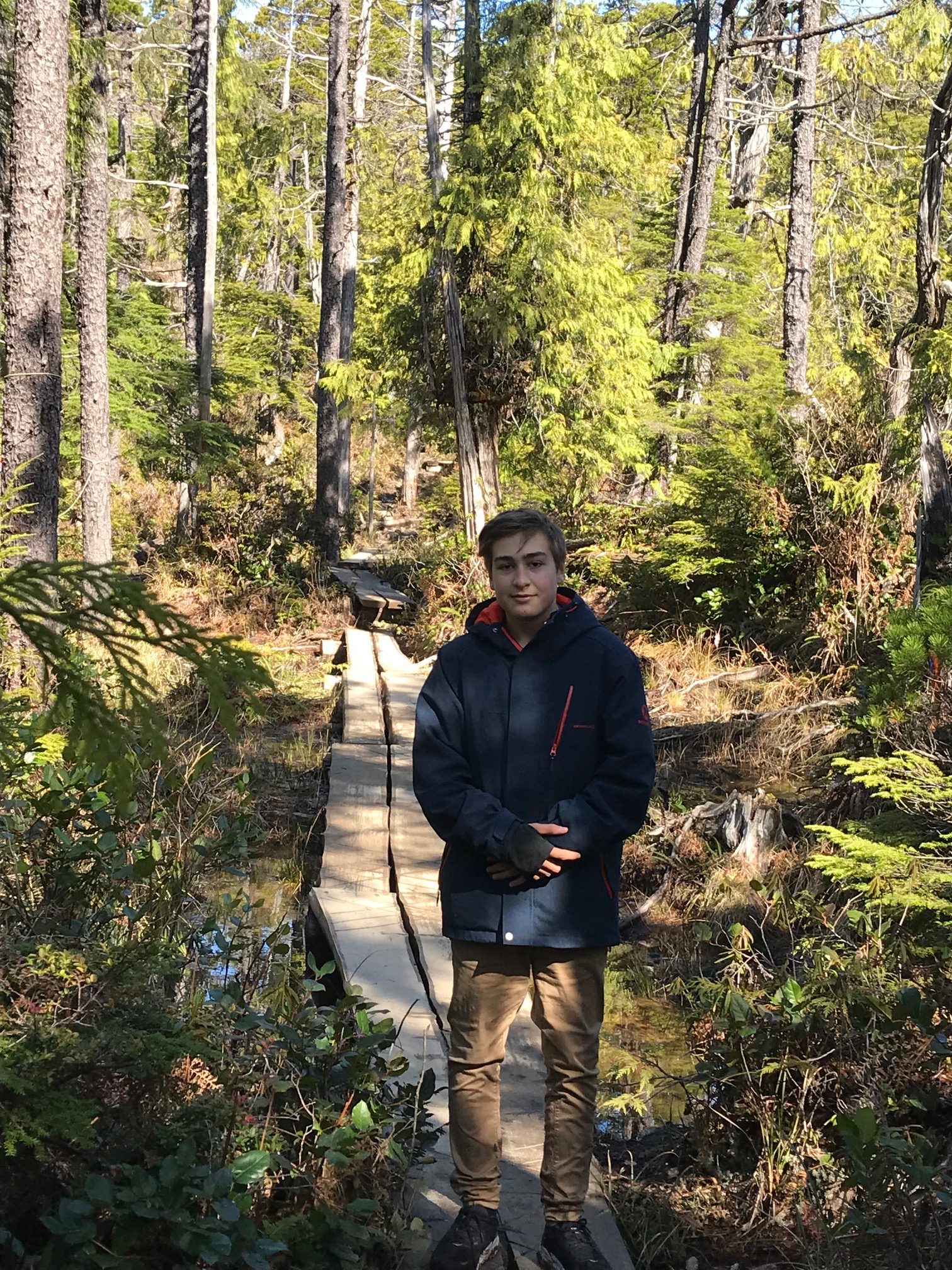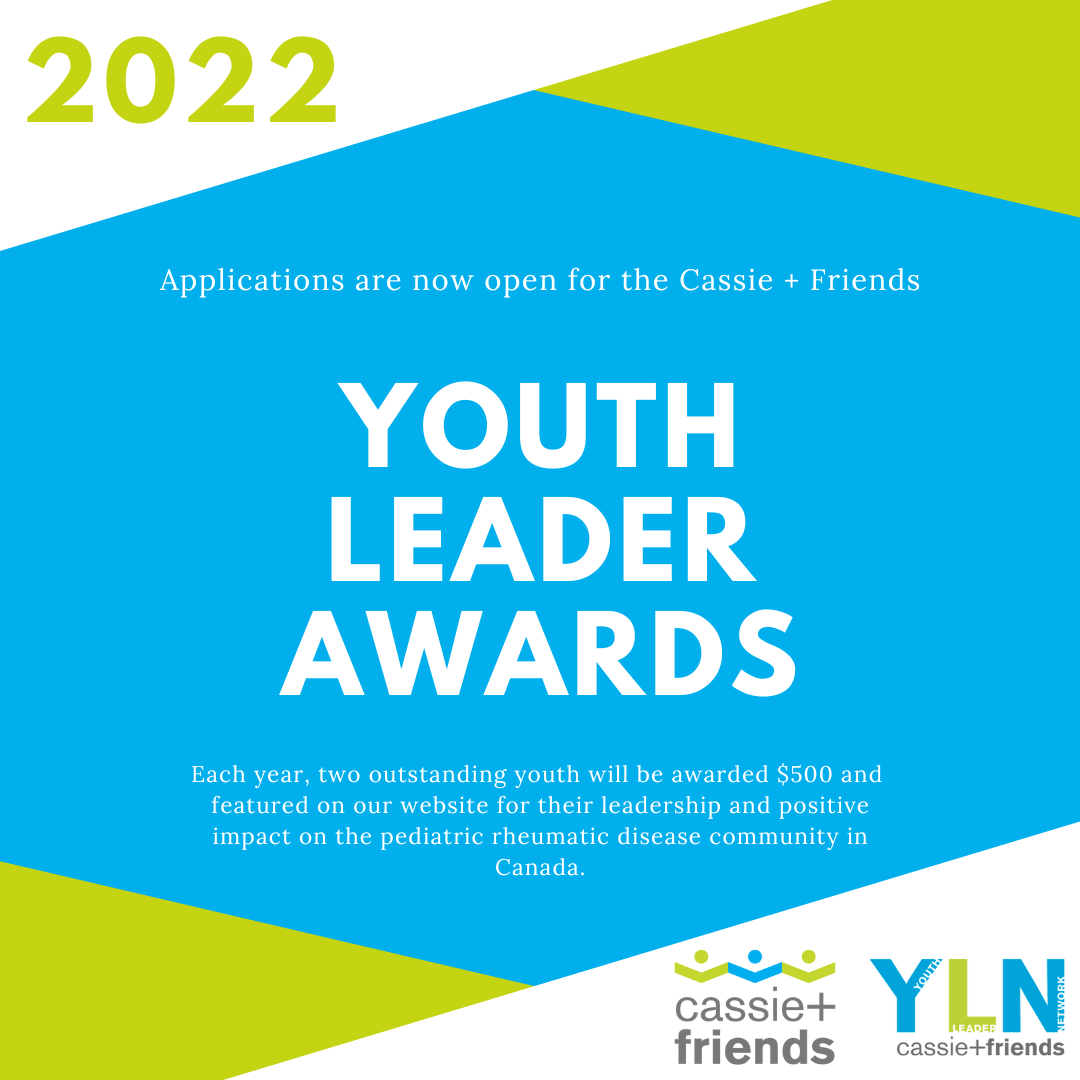Chronic Recurrent Multifocal Osteomyelitis (CRMO)
CRMO is an ultra-rare rheumatic disease causing inflammation in a child’s/teen’s bones. This condition wrongly attacks normal and healthy bone which causes pain, redness and swelling. CRMO usually starts in children around the ages of eight to 14 years and is slightly more common in girls than boys. (Source: About Kids Health)
Écoutez l’enregistrement du webinaire en Français ici.
Chronic Recurrent Multifocal Osteomyelitis (CRMO)
On Saturday April 23rd, 2022, Cassie + Friends hosted a special CRMO Webinar event with Dr. Polly Ferguson of the University of Iowa Stead Family Department of Pediatrics. This webinar will present detailed information on CRMO, treatments, emerging research and more. During the second half of the webinar you’ll hear from Sheila Grant, a mother of two boys living with CRMO along with a Q+A period. FAQs coming soon!
Facilitator: Dr. Lori Tucker, Pediatric Rheumatologist & Cassie + Friends Board Member
0:00 – Introduction by Dr. Lori Tucker
3:00 – Dr. Lori Tucker introduces Sheila Grant (Parent Speaker) and Dr. Polly Ferguson
5:55 – CRMO Presentation by Dr. Polly Ferguson: What we know about the cause of CRMO
7:00 – Basics of Immunology
8:00 – Immune Activation and Inflammation
9:50 – Immune System Cells
10:30 – What causes immune activation in CRMO?
15:35 – Genetic Factors in CRMO
33:30 – CMO Mouse Experiment
39:00 – Why don’t we use IL-1 Inhibitors to treat CRMO?
41:15 – Treatments for CRMO (Blocking Pro-inflammatory Proteins)
44:55 – Misconceptions around CRMO (“What can I feed my child to make CRMO go away?”)
47:00 – Diet Advice for CRMO
48:10 – Closing and Acknowledgements
48:56 – Dr. Lori Tucker thanks Dr. Polly Ferguson and introduces Sheila’s Presentation
49:30 – Sheila’s Presentation about her family’s journey with CRMO
57:00 – Dr. Lori Tucker thanks Sheila
57:25 – Q&A session starts
58:05 – Why is it so hard to diagnose CRMO?
1:00:55 – How long does treatment need to continue? Is it possible to discontinue treatment? Are there risks of relapse if treatment stops?
1:04:15 – What percentage of kids will continue having problems with CRMO into adulthood or does this disease resolve?
1:09:30 – Can you have CRMO only in one site?
1:10:35 – Can you have CRMO and ERA in the same person?
1:12:05 – Do you have any advice for how parents can support their kids in learning how to advocate for themselves?
1:16:00 – Is there currently a way to identify if other family members are at risk?
1:16:53 – Conclusion of the Q&A session
1:17:53 – Closing Remarks

About the Presenter: Dr. Polly Ferguson
Dr. Polly Ferguson received her medical degree from the University of Iowa Carver College of Medicine and completed her training at the University of Virginia School of Medicine. In 2002, she joined the faculty at the University of Iowa Carver College of Medicine where she is currently the Marjorie K. Lamb Professor of Pediatrics, Director of Pediatric Rheumatology, Allergy and Immunology and Executive Vice Chair at the University of Iowa Stead Family Department of Pediatrics.
Her research focuses on uncovering the genetic and immunologic basis of autoinflammatory disease, particularly those that affect the bone, as well as understanding the role of inflammation in neurologic disease. She has identified several genes that cause sterile osteomyelitis and has translated findings into effective treatment. She has nearly 100 peer-reviewed manuscripts, plus book chapters, group publications and commentaries. Her work has been cited more than 5500 times.
frequently asked questions
In line with Dr. Ferguson’s presentation, the Cassie + Friends Medical Advisory Committee has provided answers to additional questions from the CRMO Webinar. Thank you to Dr. Lori Tucker, Dr. Nadia Luca, Dr. Heinreke Schmelling and Dr. Roberta Berard for answering and reviewing the CRMO questions from our community!
There are increasing efforts to collect information about children with CRMO into long-term research registries, to help learn more about this disease, treatments and outcomes. Some pediatric rheumatology centers have their own research registries, and some centers are collaborating together to collect this information. Canadian pediatric rheumatologists have formed a CRMO research group and they are hoping to obtain funding to get some research projects started soon.
Ask your pediatric rheumatologist if you or your child can enter one of these important research studies!
Many auto-inflammatory diseases can be triggered to flare when a person gets a virus. However, it is not known whether CRMO is usually triggered in this way, and there is no evidence to suggest common virus infections ‘cause’ the development of CRMO.
There is no evidence that particular climate or temperature changes are linked to the development of CRMO.
Talk to your pediatric rheumatology team- often the nurse or OT will have great tips for helping with pain. Talk to your pediatric rheumatology doctor to be sure your child’s treatment is maximized.
Using Tylenol or Naproxen can be helpful if your child is not currently taking these; in some cases, a short course of steroids may help with a difficult flare.
There are no consensus guidelines regarding the benefit of routine follow up MRI testing in CRMO, and there is a lot of discussion among “CRMO” experts about this issue. Many physicians treat based on symptoms and inflammatory signs; other physicians are focused on treating radiograph (x-ray or MRI) lesions. Since many CRMO lesions resolve over time, it is difficult to know whether continued treatment is necessary or provides additional benefit.
We will likely only have answers to these questions over time, as our research networks collect more data in larger groups of patients.
As outlined in Dr. Ferguson’s talk, there is no single gene that causes CRMO. Clinically available genetic testing will not help with making a diagnosis, nor will it help in selecting treatment. Treatment for CRMO is based on symptoms, inflammatory markers, and in some circumstances x-ray/MRI findings.
Many pediatric rheumatologists will consider more active treatment in children who have CRMO involving the spine. This may include the options listed above. Whether to treat spine lesions that are not causing symptoms, but identified on MRI, is controversial at the present time.
In Dr. Ferguson’s talk (see the video!), she describes the treatment options often used for children with CRMO. When Naproxen or other non-steroidal anti-inflammatory medications do not work, treatments may include bisphosphonates (bone medication), corticosteroids (to help with short term flares), methotrexate, or biologic medications. Discussing these options with your pediatric rheumatologist will help select the best treatment for you or your child.
For many patients with CRMO, there is long term healing of the CRMO lesions. The bone may be left with an area of what is called ‘sclerosis’, which is like a scar, but this doesn’t mean the bone is weak; it is like healing after a fracture. It is less frequent that CRMO lesions have been so large, or in areas where longer term bone damage can cause difficulties.
There is controversy at the present time about treatment of CRMO, with respect to whether treatment should be continued if there is a bone lesion when a patient is not having symptoms or progression.
This is a somewhat controversial topic. Currently, there are no established guidelines for treatment of CRMO in various stages. We do know that many CRMO lesions do progress to a healing phase. Areas that may be more concerning and require consideration of longer treatment would be those affecting the spine, areas that have had frequent flare-ups, or larger lesions affecting the pelvis.
Deciding on the best treatment for your child’s situation is best done in a collaborative way with a patient, family and pediatric rheumatologist.
There is not a lot of literature on long-term outcomes of patients with CRMO to provide rates of remission, and persistence of remission after stopping medication. Dr. Ferguson discussed this in her talk- we know how to start medications but we have little evidence base for understanding when to stop. Many children with CRMO are able to discontinue medication successfully, and discussing a plan with your pediatric rheumatologist is the best approach.
helpful links
About Kids Health
CRMO Foundation
CRMO Facebook Group
Kaila’s Komfort
Tyler’s Awareness Website
read our stories
Meet our 2021 Top Youth Leaders!
Congratulations to Tyler Mah and Natasha Trehan, recipients of the [...]
Our Family’s Journey with CRMO
Meet Sheila and Jim! They've shared their family’s journey [...]
Meet our 2022 Top Youth Leaders!
Congratulations to Jake Shiell and Emma Linsley, recipients of [...]








